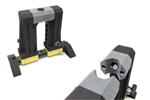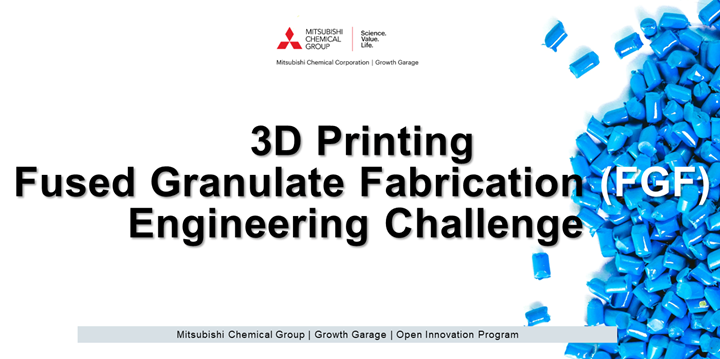Mitsubishi Chemical Group launches 3D printing FGF engineering challenge
The open AM innovation program welcomes all interested parties who would like to make use of the potential of 3D printing FGF or combine it with materials like carbon fiber, UD tape and other hybrid technologies.
On Nov. 8, Mitsubishi Chemical Group’s (MCG, Düsseldorf, Germany) Growth Garage, the company’s Open Innovation Hub, in collaboration with partners from the 3D printing industry, announced the commencement of the 3D Printing Fused Granulate Fabrication (FGF) Engineering Engineering. It aims to invigorate co-innovation between top industry players from the 3D printing industry and startups, scale-ups and forward-thinking companies.
In this open innovation program, MCG’s Growth Garage collaborates with selected industry partners including Ford, Alstom, Mitsubishi Heavy Industries, CEAD, Adaxis, Belotti, Fis Robotics, Haddy and Nedcam. To promote sustainable innovation, the Global KAITEKI Center and Arizona State University are also part of the engineering challenge.
MCG and its partners are inviting all interested parties who would like to explore or further advance their product or parts with FGF and hybrid technologies, to participate. 3D printing FGF, or pellet 3D printing, enables cost-effective printing of large parts. The challenge welcomes innovative ideas that make use of the potential of 3D printing FGF or combine it with materials like carbon fiber, unidirectional (UD) tape and other hybrid technologies, such as CNC machining.
“In the quest for ground-breaking ideas, innovative and sustainable solutions, collaboration with different minds and skills is key,” Ralph-Vinzenz, vice president EMEA Specialty Materials Business Group, says. “And our materials are the foundation upon which these ideas and solutions take shape.”
MCG has a wide range of 3D printing FGF materials, spanning from soft to high-performance properties for various applications. Grades with a low carbon footprint, featuring bio-based components or recycled content are available in the portfolio to produce parts with a low carbon footprint or to enable circular business models. The challenge winner will gain access to a multitude of support which includes technology expertise, support in material selection, feasibility assessment, industry expert feedback, design and manufacturing assessment.
The challenge submission period will close on Feb. 14, 2024. A panel of experts and industry leaders will select the Overall Challenge Winner based on predefined selection criteria. For detailed information about the challenge, partner companies and participation, please visit this link.
Related Content
-
PEEK vs. PEKK vs. PAEK and continuous compression molding
Suppliers of thermoplastics and carbon fiber chime in regarding PEEK vs. PEKK, and now PAEK, as well as in-situ consolidation — the supply chain for thermoplastic tape composites continues to evolve.
-
Plant tour: Joby Aviation, Marina, Calif., U.S.
As the advanced air mobility market begins to take shape, market leader Joby Aviation works to industrialize composites manufacturing for its first-generation, composites-intensive, all-electric air taxi.
-
Manufacturing the MFFD thermoplastic composite fuselage
Demonstrator’s upper, lower shells and assembly prove materials and new processes for lighter, cheaper and more sustainable high-rate future aircraft.














.jpg;maxWidth=300;quality=90)


